I suppose I must be one of the last people still alive who was taught how to ride a penny-farthing bicycle by a veteran of the Boer War. It was a bruising experience because he taught me how to get on but not how to get off. He was a veteran of Mafeking, and he once he showed me a scar on his arm and said, “I look at that each night and I remember my friends who died.”
And is that what Remembrance Sunday is about — the remembering of friends who might otherwise be forgotten? Edith Sitwell’s brother told her how, when he was an officer in France in the First World War, he had to censor letters, and how therefore he opened one which simply said, “Do not forget me, do not forget me, do not forget me.”
And we do not forget. There are still some for whom Remembrance Sunday is a matter of personal memory, a “staring through smoky time,” as Ronald Blythe once put it, “at some face which only I can recognise and remember. “A friend of mine, a year ahead of me in the sixth form at school, was killed in Korea, and I can see him still.
We do not forget. But for many the remembering will not be personal in that way. It will be an act of participation, of belonging to a particular society with its own history, its own distinct character which generations before us have brought into being and have when necessary defended.
And that is why we have occasions of deliberate commemoration — most obviously of those who died in two World Wars, but also of those who died in conflicts much more distant in space and time than that. Two weeks ago we commemorated the battle of Agincourt, and earlier this year we had “a national service of commemoration” on the 200th anniversary of the battle of Waterloo — and none of us are likely to have personal memories of those battles — though oddly I do have an indirect connection even with Waterloo.
In 1940, when it seemed inevitable that the Germans would attempt an invasion, I was taken to see my great-grandmother who was then 90 years old. She was very much of the Victorian age, and after the death of her husband she had draped herself and her room entirely in black. I was told to go and kiss my great-grandmother, but I was not too sure what a great-grandmother was. Apparently I walked up to an aspidistra draped in black and gave it a hug. When we’d got that sorted out, she told me how, as a girl, she had been taught how to ride a horse by her uncle, my great-uncle, who had been at the battle of Waterloo as a young farrier. When all his horses had been killed, he had been used to carry messages — including maybe to Lord Uffington; and if we remember nothing much about Waterloo, we are likely to remember Lord Uffington’s leg. Indeed, when I was in the Army and I was stabbed in the leg by a bayonet, I turned to the man beside me and said, “By God, sir…”, and he immediately replied, “You’ ve lost your right leg.”
But Remembrance Sunday is about much more than personal memories. It is a part of what has been called by sociologists, “the covenant of mutual loyalty between the living and the dead”. That covenant affects and gives a particular character to every kind of society, whether it’s large, as in the case of a nation, or small, as in the case of a College. That is why the national service in St Paul’s commemorating Waterloo began with these words:
“We are gathered here to reflect on past conflict, to acknowledge human struggle and sacrifice known and unknown, to pray for peace between nations, and to respond with generosity and humanity. We pray that, from the lessons of history, we may learn and foster a new vision for God’s earth, for its people and for its future, as we strive to do God’s will and not our own.”
I’m not too sure about learning lessons from history. If there is any lesson to be learned from history, it is that each generation faces its own momentous challenges and threats. That was certainly true of my generation. When I arrived here in this Michaelmas term exactly 60 years ago, the Second World War had ended only a few years earlier, and we were already engaged, not just in the Cold War but in actual wars in Korea, Malaya, Cyprus and East Africa. Almost all of us had done National Service, and those who had been sent to zones of conflict had not particularly expected to return. We were even trained what to do if an atomic weapon was exploded near us. We were told to put a hand over our eyes, hold our nose, cover our mouth, and put fingers in our ears: try to do that some time and you will see that why you are unlikely to survive an atomic war.
So certainly we faced challenges, not just of war, but of trying to rebuild a shattered world. But I reckon that you in your generation face immeasurably greater challenges and disasters and threats than we did. I cannot even begin to imagine how you will respond or what you will do. But I am absolutely certain that you will respond. And why am I so certain? Because you are here on this Remembrance Sunday keeping your covenant of mutual loyalty with the dead.
One of the truly great poems to emerge from the Second World War was Alan Bold’s ‘Buchenwald’:
“This is the way in. The words
Wrought in iron on the gate:
Jedem das seine. Everybody
Gets what he deserves
The bare drab rubble of the place.
The dull damp stone. The rain.
The emptiness. The human lack.
Jedem das seine. Jedem das seine.
Everybody gets what he deserves.
And it could happen again
And they could hang like broken carcasses
And they could scream in terror without light
And they could count the strokes that split their skin
And they could smoulder under cigarettes
And they could suffer and bear every blow
And it could happen again.
Everybody gets what he deserves.”
And it does happen again, and it is happening again, even at this moment, as you know only too well. The realities of evil do not disappear.
And how do we respond? Alan Bold answers,
“We turn away. We always do.
But it’s what we turn into that matters.”
That is the issue that lies before you in this place. Turn away? Yes, too often, sadly, we do
But: ‘Turn again’. That is a command issued, not just to Dick Whittington in a pantomime, but to us all. That is why, in the Bible, the verbs shubh in Hebrew and strefo/epistrefo in Greek are so important:
“Turn away from your evil ways,” pleads Ezekiel, “Turn back that you may live.” Or Paul arguing his case before Agrippa:
“I have been sent to open people’s eyes that they may turn from darkness to light, and from the power of Satan to God.”
It is what we turn into that matters. Of course when you are young your choices and options will be limited – not least because you will be struggling to achieve what Antony Trollope called in Orley Farm, “that beautiful result of British perseverance, a credit balance at your bank”.
Equally when you are old your options will again certainly be limited: “Why should the agéd eagle stretch its wings?”, as Eliot asked. “Because I do not hope to turn again… Because these wings are no longer wings to fly.”
Even so, to continue with Eliot, you can still choose to turn to prayer: ‘Pray to God to have mercy upon us, pray for us sinners now and at the hour of our death.” And pray also, therefore, for those whom we remember today.
We are always, young or old, hemmed in by our own circumstance, but the fact remains that we always do have choices to make. And those choices create over time what it is that we turn into. To go back to Alan Bold’s poem:
“In a cosmic context
Human life is short. The future
Is not made, but waits to be created.
We are not helpless creatures
Crashing onwards irresistibly to doom.
There is time for everything and time to choose
For everything. We are that time, that choice.”
“This is the time of tension between dying and birth.” And that is why you are wise to take seriously what this place, this Chapel, is, and why it is, and why also it is here as part of a College. We need the help of God if we are to turn from dull clay into a work of God’s art, as Paul put it, a living work of beauty. But we need the friendship of each other in the proper and fundamental meaning of a College.
That word ‘college’ comes from the Latin word collegium, and that word ended up being used of people living together in community under common rules and authority. But collegium originally was a translation of a Greek word έταιρια, and that word placed a much greater emphasis on friendship, on communities constituted by friends who together are seeking the common good.
That is exactly what this College has been and I am sure still is in your hands. For you are here in this Chapel and on this day, not just in a covenant of mutual loyalty with the dead, but also in a covenant of mutual loyalty with each other. “By this will all people know that you are my disciples, if you have love for one another.” (John 13.35).
George Richmond, the great Victorian portrait painter, was once asked whether, in his portraits, he tried to tell the truth, and he replied, “The truth, yes; but the truth lovingly told.” It is what we turn into that matters: the truth, yes, but the truth lovingly lived.
That is why a chapel, with its life in this College, has so much to offer you. But you have much more to offer to it. We need each other in this place to receive from God the resource and the encouragement — yes, and sometimes the correction and judgement — that will turn us into a resource of goodness for others. ‘Do this in remembrance of him’ who in this enacted way brings the dynamic and the love of God directly into your life, your being, your character. Often, yes, we turn away, but it is what we turn into that matters. May he who gave his own life for the redemption of the world give you the grace and courage to become a gift of goodness to others. Amen.

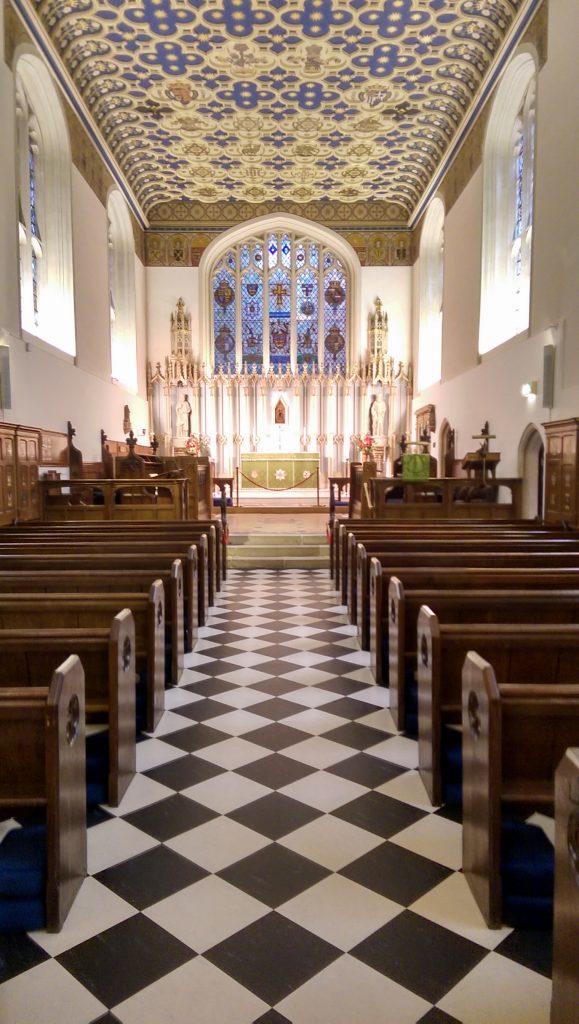
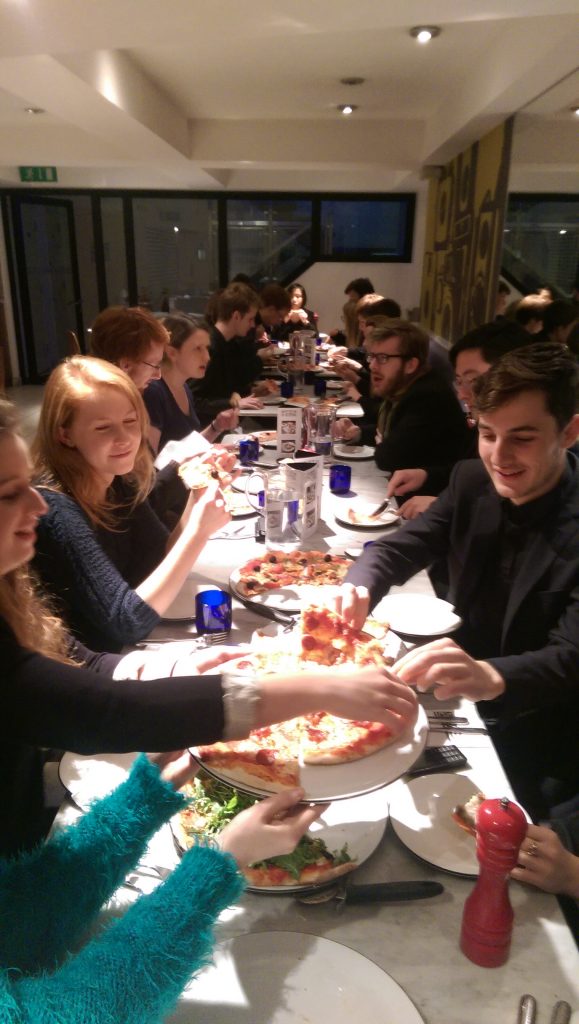
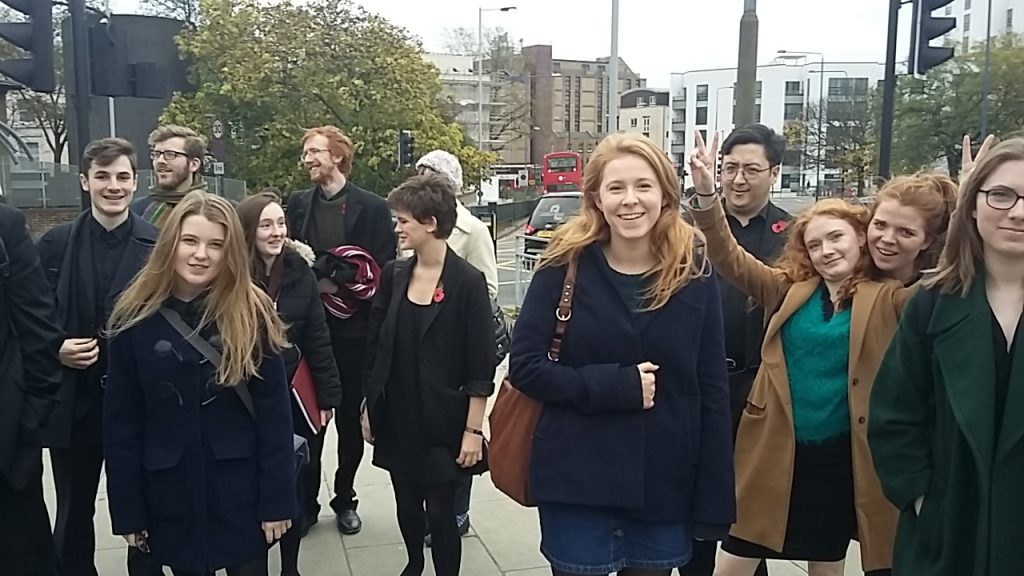
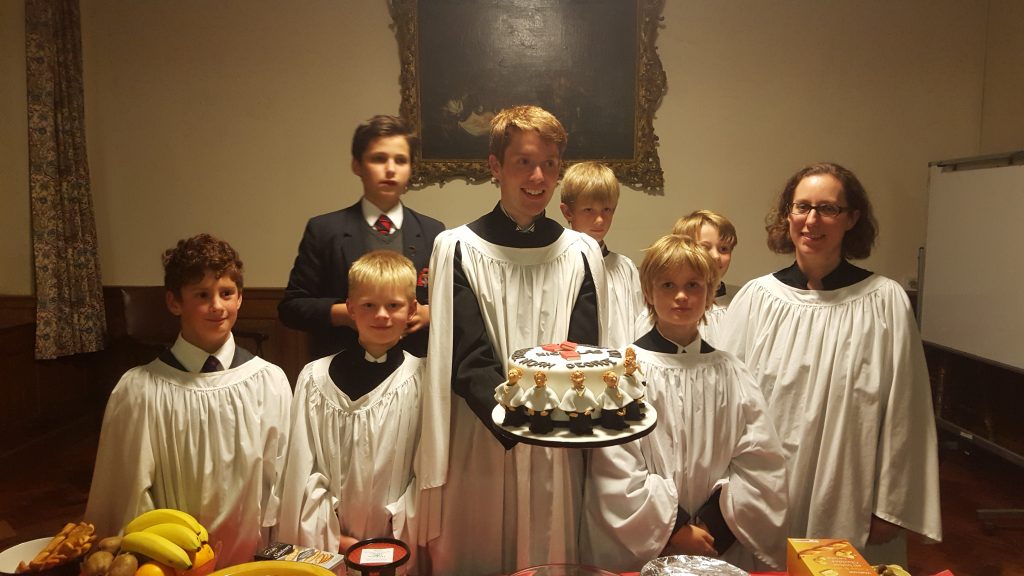
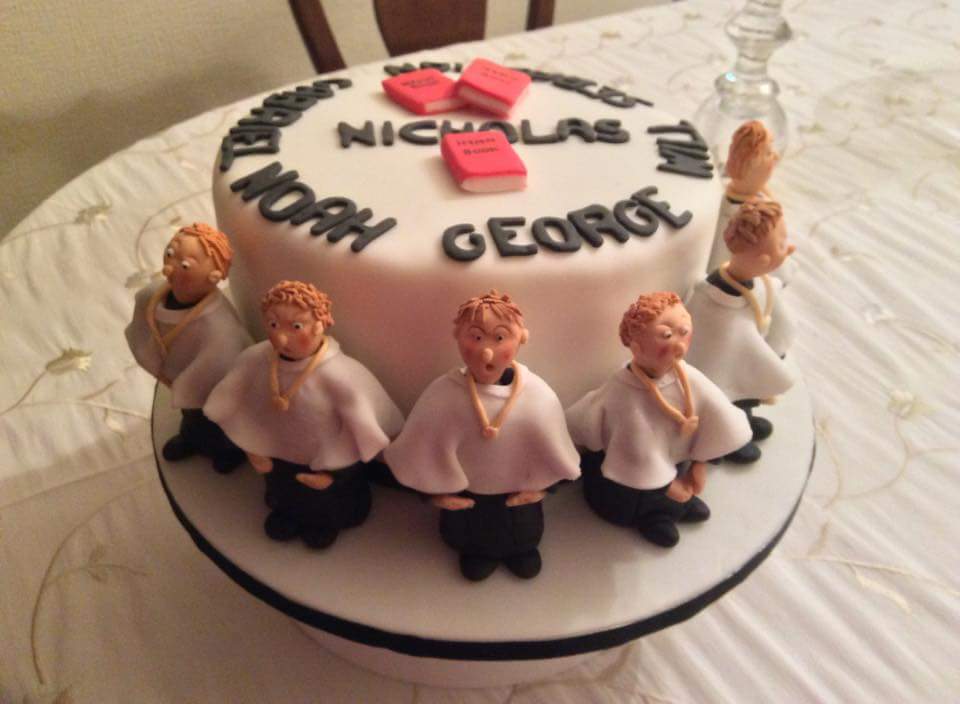


 Many thanks are due to Richard Murray of Christ Church Cathedral School, and the team of parents who helped everything run smoothly, along with the local knowledge and organisation of Jonathan Price. The trip was an excellent way to round off the year for the boys.
Many thanks are due to Richard Murray of Christ Church Cathedral School, and the team of parents who helped everything run smoothly, along with the local knowledge and organisation of Jonathan Price. The trip was an excellent way to round off the year for the boys.